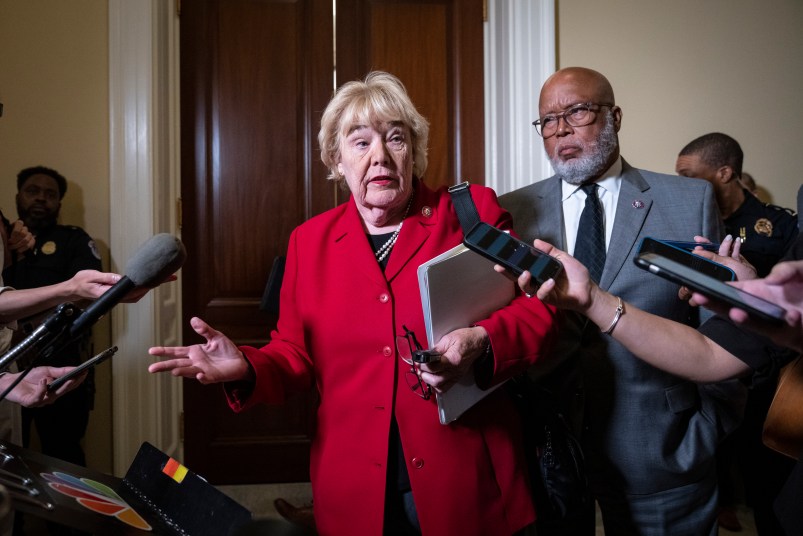The Jan. 6 committee spent most of its second hearing Monday picking apart Trump’s relentless lies about the 2020 election outcome — lies he pursued despite findings from both his campaign staff and government investigators that the election results were legitimate.
But Monday’s hearing ended with an interesting change of topic: The panel zeroed in on Trump’s fundraising. Specifically, the committee found, Trump lied to his base in order to raise millions of dollars, and then used that money to pursue his own political and personal ends.
According to the committee’s senior investigative counsel Amanda Wick, it went like this: After Trump lost the 2020 election — and even after the “safe harbor date” that usually spells the end of election lawsuits — Trump and his campaign pursued a fundraising strategy based around a so-called “Election Integrity Fund”: A fund that they told donors would help “PROTECT THE INTEGRITY OF OUR ELECTION” in dozens of emails over several weeks.
But the Election Integrity Fund didn’t exist: Gary Coby, the campaign’s former digital director, agreed during a deposition that it was a “marketing tactic.” And the tactic worked: The committee found that Trump and his allies raised nearly $100 million in the first week after the election.
On Nov. 9, Trump created the “Save America PAC.” Wick said most of the money for the “Election Defense Fund” went to that account. And that PAC, in turn, made millions in donations to Trump-aligned groups: $1 million to former White House chief of staff Mark Meadows’ charitable foundation, $1 million to the America First Policy Institute, which employed several former Trump administration officials, $204,857 to the Trump Hotel Collection, and over $5 million to Event Strategies Inc., the company that ran Trump’s White House Ellipse rally — the event that preceded the Capitol attack.
The campaign sent fundraising emails regularly, including one about 30 minutes before the Capitol was breached, Wick said.
The committee, at times, seems to have an audience of one: Attorney General Merrick Garland, who would have final say over any high-level criminal charging decisions related to the Capitol attack. And the panel’s focus on these funds may be an instance of its members shaping their arguments for the attorney general.
“Throughout the committee’s investigation, we found evidence that the Trump campaign and its surrogates misled donors as to where their funds would go and what they would be used for,” Rep. Zoe Lofgren (D-CA) said at the end of the hearing. “So not only was there the Big Lie. There was the Big Ripoff.”
(Garland, for what it’s worth, said Monday that he was watching all of the committee’s hearings, adding, “I can assure you the Jan 6th prosecutors are watching all the hearings as well.”)
Asked after the hearing if there was evidence of Trump committing financial crimes, Lofgren (D-CA) said, “We’re a legislative committee. And it’s clear that he intentionally misled his donors, asked them to donate to a fund that didn’t exist and used the money raised for something other than what is said.”
“Now it’s for someone else to decide whether that’s illegal or not. That’s not the purview of a legislative committee,” Lofgren added.
CNN’s plugged-in congressional reporter, Manu Raju, reported that committee Chair Bennie Thompson (D-MS) “said similar.”



